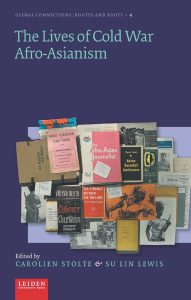The 1950s constituted an era of transformation, where decolonization and patronage from competing Cold War powers created opportunities for new alliances among people across the colonial and postcolonial world. The turn of the millennium saw public commemorations of the fiftieth and sixtieth anniversaries of post-colonial independence in Asia and Africa, but also of the official gatherings that brought together representatives from new and aspiring nations, such as the 1955 Afro-Asia conference in Bandung, Indonesia.
While major diplomatic initiatives such as the Bandung conference have gained scholarly attention in recent years, there is little study of the way in which non-state actors throughout the Global South interacted and conversed with each other – not in the key sites of international diplomacy, but through journeys, private initiatives, personal communication, and underground or lesser-known conferences and gatherings.
This was not just a decade of diplomacy among new political elites, but also a period of intensive social and cultural interaction among non-state actors in the postcolonial world. Across Asia and Africa, intellectuals, activists, and revolutionaries conversed across national, linguistic and ideological borders. Artists, poets, and performers experimented with new ideas and techniques for intellectual and cultural expression to create new visions of the nation. They engaged critically with communist, socialist and democratic ideas in circulation, constantly reformulated their political loyalties, and built up networks of intellectual and radical sociability. There is much more scope to bring cultural exchanges into a transnational frame, while examining the ways in which an emerging creative class interacted with activists at home and abroad during this time.
Rather than view this era through the lens of international diplomacy or particular nation-states, the ‘Afro-Asian Networks’ research collaboration explores transnational networks of affinity at the non-state level, through the lived experiences of activist, artistic, and intellectual communities participating in a widening world of global connections. By bringing together scholars working on a number of different regions, the project breaks out of traditional national and regional frameworks to look at exchanges across Asia and Africa. This collaboration will provide the necessary framework to ask the following questions: How did Asian and African activists make use of transnational networks? What effects did soft power initiatives by the US and Soviet Union have on these networks? What role did mentalities of internationalism and cross-cultural exchange have on the formation of civil society in the decolonising Global South? Which particular issues were able to mobilise communities across borders and, conversely, what were the limits of transnational exchange in this period?
Out Soon!!

The Lives of Cold War Afro-Asianism, forthcoming with Leiden University Press in November/December 2022! Pre-order your copy here. Featuring articles from our ‘Other Bandungs’ special issue, as well as exciting new chapters by Elisabeth Armstrong, Wildan Sena Utama, Taomo Zhou, Yasser Nasser, Amzah Adam, Tycho de Hoog, Adeline Broussant.
Out now!:
The Afro-Asian Networks Research Collective, “Manifesto: Networks of Decolonization in Asia and Africa“, Radical History Review 131 (May 2018)
Special Issue on “Other Bandungs: Afro-Asian Internationalisms in the Early Cold War Era”, Journal of World History Vol. 30 Nos 1&2 (June 2019)
Special Issue on “Trade Union Networks and the Politics of Expertise in an Age of Afro-Asian Solidarity” in Journal of Social History 53:2 (Winter 2019)
